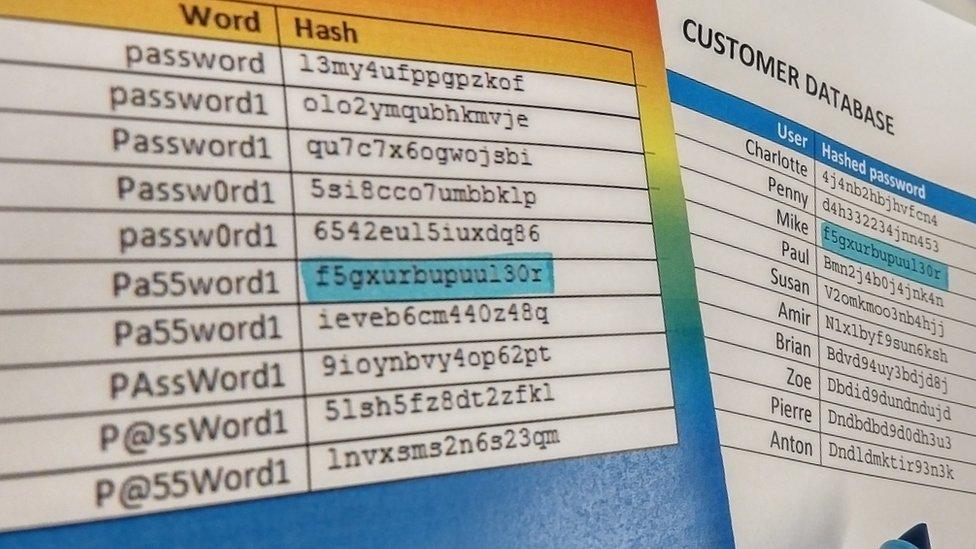Vtech breach: Passwords 'not securely stored'
- Published

Toy giant Vtech has been accused of not securely storing customer passwords in its database, security experts say - with one calling it "unforgivable".
Hackers accessed more than six million children's account details last month.
Security researchers say Vtech did not take common steps to protect customer passwords in the event of a breach.
On Monday, Vtech emailed affected customers and said their passwords had been "encrypted" but it was "possible the hacker may have decrypted" them.
However, Rik Ferguson, from cybersecurity firm Trend Micro, said Vtech had not properly scrambled customer passwords in its database and had also stored customers' security questions and answers in plain text.
How should websites store your password?

Similar words produce totally different hashes
Secure websites never store your chosen password in a readable format.
Instead, a mathematical algorithm scrambles or hashes the password into a string of code. Only the "hash" of your password is stored by the website.
When you type your password on a website, it is hashed again and compared to the copy stored in the database. If the two hashes match, you are allowed in.
Vtech did hash its customers' passwords, but this process alone is not complex enough to stop people working out the stored passwords.
To add extra complexity to the hashing process, randomly generated text known as "salt" can be added to each user's password before it is scrambled.
Salting makes every hash different, even if two people have chosen the same password.
The process makes it very time-consuming and impractical for criminals to try and work out customers' passwords.
However, Vtech did not salt its customers' passwords - exposing them to a hash table attack.
What is a hash table attack?

Unlike encryption, which can be unlocked with the right key, hashing is a one-way process which cannot be reversed.
However, hackers can sometimes work out passwords with a hash table attack.
"If you know the algorithm, you can take a dictionary of known words or commonly used passwords and generate all the hashes for them," said Mr Ferguson.
"That gives you a rainbow table and you can then look to see if any of the hashes match those in the customer database."
Salting makes this method impractical because criminals would need to create a unique rainbow table for each person on the database.
Bad algorithm

Vtech used a vulnerable algorithm to hash passwords
Mr Ferguson said Vtech had also used a vulnerable algorithm to hash its customers' passwords.
"They made a poor choice. The MD5 algorithm has been known to be flawed for a decade," he told the BBC.
"It is unforgivable, for a technology company making products for children. They had an enormous duty of care and they failed.
"If you used the same password on any other website, change it immediately - and let this be a lesson never to reuse passwords on more than one site.
"Don't forget that the security password and question have been exposed too - so if you used those anywhere else, change them too."
The BBC has invited Vtech to comment.
- Published1 December 2015
- Published2 December 2015
- Published27 November 2015
